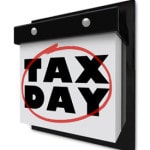How long should you keep your business records?
A common and ongoing question facing business people is how long they should retain business records. Unfortunately, there is no easy answer to this question. Many factors come into play — type of business, specific needs of management, and state and regulatory requirements, among others. However, the following suggested retention schedule provides a rough rule of thumb. In some cases legal advice may be advisable.
What should I retain permanently?
- Accountants’ audit reports
- Bills of sale
- Cancelled checks
- Capital Stock & Bond records and other records dealing with the firm’s capital structure
- Cashbooks
- Charts of accounts
- Contracts and leases
- Correspondence (legal matters)
- Credit History
- Deeds and mortgages
- Financial Statements
- General and private ledgers
- Insurance records
- Journals
- Minute-books, by-laws and certificates of incorporation
- Property appraisals
- Property records
- Tax returns (with all related documents and worksheets)
- Trademark registrations
What should I retain for seven (7) years?
- Accident reports and claims
- Accounts payable/receivable ledgers and schedules
- Cancelled checks
- Cancelled stock and bond certificates
- Contracts and leases
- Expense analyses and distribution schedules
- Expired option records
- Inventories (customer and vendor)
- Notes receivable ledgers and schedules
- Payroll records and related documents
- Plant cost ledgers
- Purchasing department copy of purchase orders
- Royalty computations
- Sales records
- Scrap and salvage records
- Subsidiary ledgers
- Time books
- Vouchers for payments to vendors and employees
What should I retain for five (5) years?
- Excise tax computations
- Internal audit reports
What should I retain for three (3) years?
- Correspondence (general)
- Employment applications
- Insurance policies (expired)
- Miscellaneous internal reports
- Petty cash vouchers
- Physical Inventory tags
What should I retain for two (2) years?
- Proxies of voting security holders
What should I retain for one (1) year?
- Bank reconciliations
- Duplicate bank deposit tickets
- Purchase orders
- Receiving sheets
- Requisitions
- Stockroom withdrawal forms
How do I develop a basic filing system?
Begin by preparing a list of all your assets and financial records, to protect your loved ones in the event of your death. Create separate, permanent file folders for 1) home purchase and improvements, 2) sales receipts for appliances and major home furnishings, 3) savings and investment records, 4) insurance policies. It is a good idea to keep each year’s tax records in a folder or box, with the year clearly marked.
